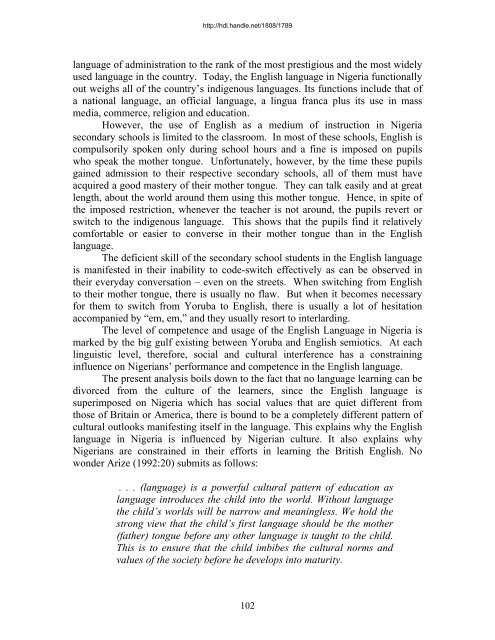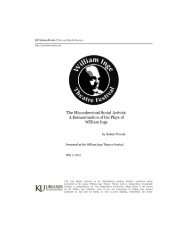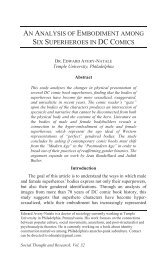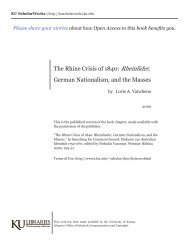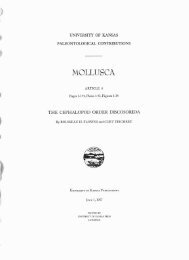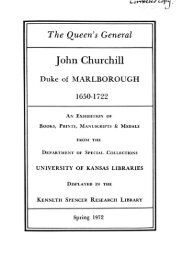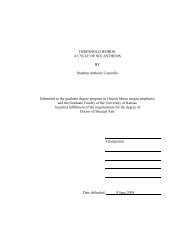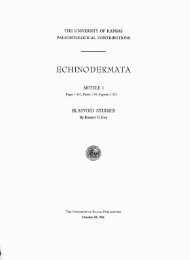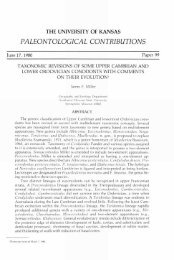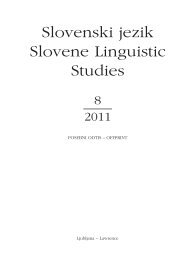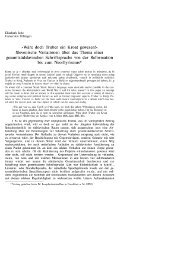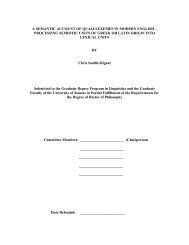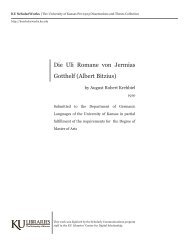LANGUAGE CONTACT AND LANGUAGE ... - KU ScholarWorks
LANGUAGE CONTACT AND LANGUAGE ... - KU ScholarWorks
LANGUAGE CONTACT AND LANGUAGE ... - KU ScholarWorks
Create successful ePaper yourself
Turn your PDF publications into a flip-book with our unique Google optimized e-Paper software.
http://hdl.handle.net/1808/1789<br />
language of administration to the rank of the most prestigious and the most widely<br />
used language in the country. Today, the English language in Nigeria functionally<br />
out weighs all of the country’s indigenous languages. Its functions include that of<br />
a national language, an official language, a lingua franca plus its use in mass<br />
media, commerce, religion and education.<br />
However, the use of English as a medium of instruction in Nigeria<br />
secondary schools is limited to the classroom. In most of these schools, English is<br />
compulsorily spoken only during school hours and a fine is imposed on pupils<br />
who speak the mother tongue. Unfortunately, however, by the time these pupils<br />
gained admission to their respective secondary schools, all of them must have<br />
acquired a good mastery of their mother tongue. They can talk easily and at great<br />
length, about the world around them using this mother tongue. Hence, in spite of<br />
the imposed restriction, whenever the teacher is not around, the pupils revert or<br />
switch to the indigenous language. This shows that the pupils find it relatively<br />
comfortable or easier to converse in their mother tongue than in the English<br />
language.<br />
The deficient skill of the secondary school students in the English language<br />
is manifested in their inability to code-switch effectively as can be observed in<br />
their everyday conversation – even on the streets. When switching from English<br />
to their mother tongue, there is usually no flaw. But when it becomes necessary<br />
for them to switch from Yoruba to English, there is usually a lot of hesitation<br />
accompanied by “em, em,” and they usually resort to interlarding.<br />
The level of competence and usage of the English Language in Nigeria is<br />
marked by the big gulf existing between Yoruba and English semiotics. At each<br />
linguistic level, therefore, social and cultural interference has a constraining<br />
influence on Nigerians’ performance and competence in the English language.<br />
The present analysis boils down to the fact that no language learning can be<br />
divorced from the culture of the learners, since the English language is<br />
superimposed on Nigeria which has social values that are quiet different from<br />
those of Britain or America, there is bound to be a completely different pattern of<br />
cultural outlooks manifesting itself in the language. This explains why the English<br />
language in Nigeria is influenced by Nigerian culture. It also explains why<br />
Nigerians are constrained in their efforts in learning the British English. No<br />
wonder Arize (1992:20) submits as follows:<br />
. . . (language) is a powerful cultural pattern of education as<br />
language introduces the child into the world. Without language<br />
the child’s worlds will be narrow and meaningless. We hold the<br />
strong view that the child’s first language should be the mother<br />
(father) tongue before any other language is taught to the child.<br />
This is to ensure that the child imbibes the cultural norms and<br />
values of the society before he develops into maturity.<br />
102


